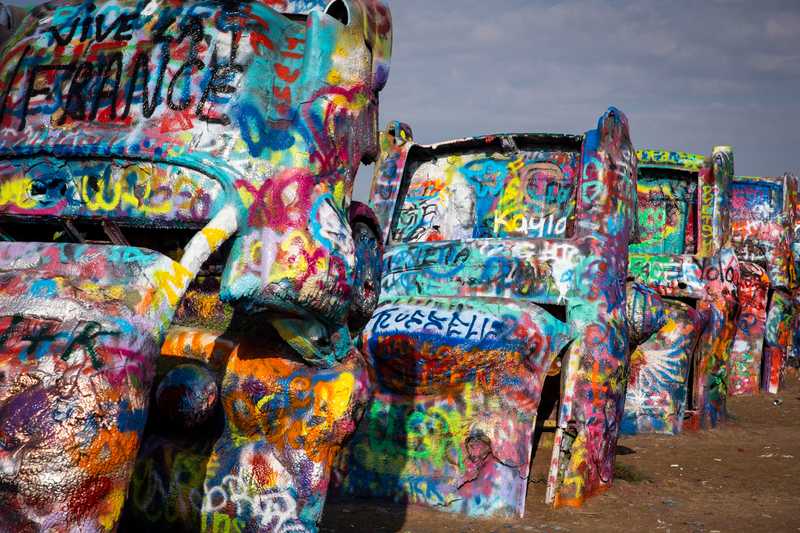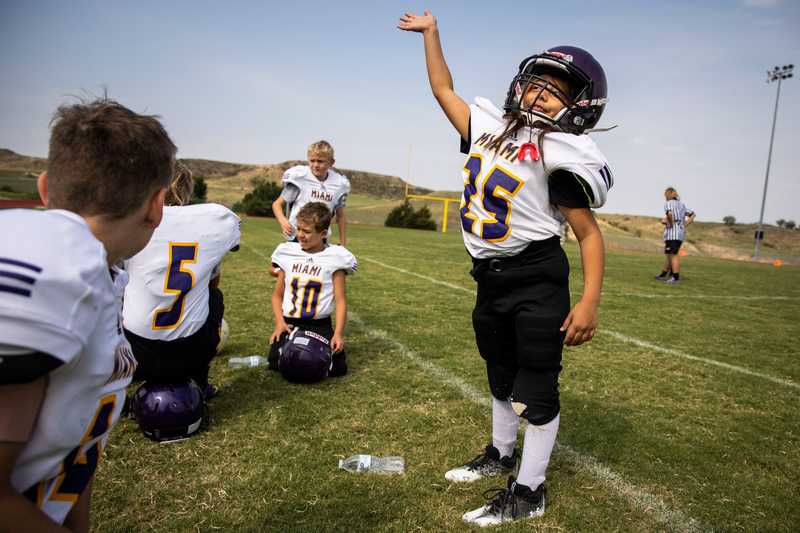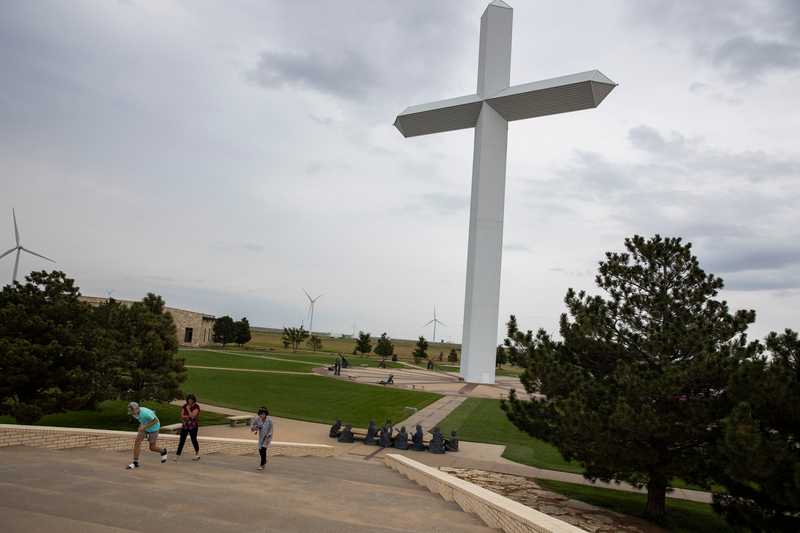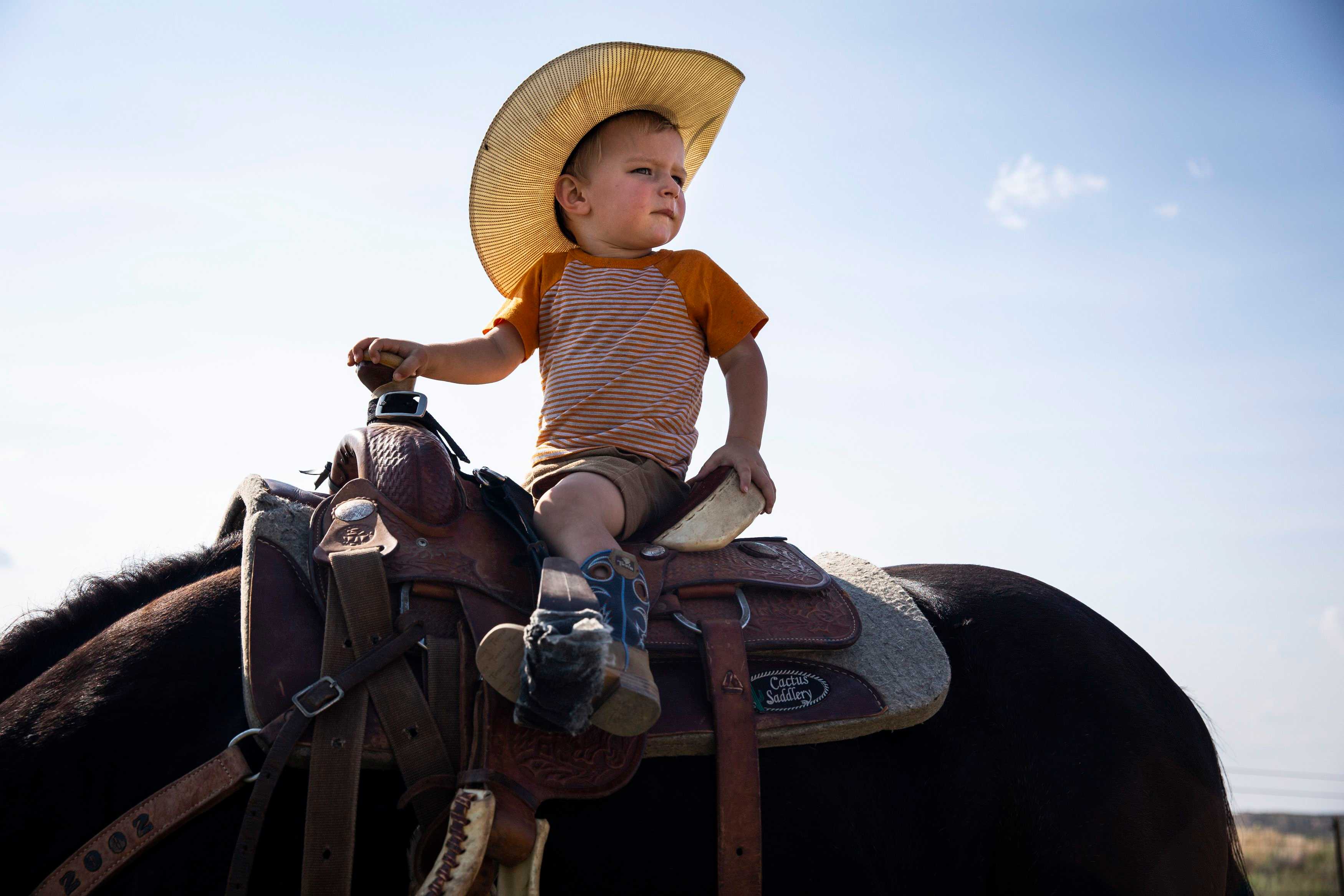
Los Angeles team
Oct. 31, 2022
Portraits from ‘Trump Town USA’, the Texas community at the center of a one-time media frenzy
MIAMI, Texas — Through a trick of the landscape, the Panhandle town of Miami is invisible almost until you’re in it.
Surrounded on all sides by amber-green hills and cattle farms, Miami is quiet. It has no bars or restaurants, although there is a small grocery store with a few laminate tables.
But there are gathering places: the echoing mechanic’s garage where people talk or consult the phone book in between errands; the county’s overflowing historical museum, where women come to quilt in the afternoons; the tire shop where friends in this dry county drink beer on Friday evenings.
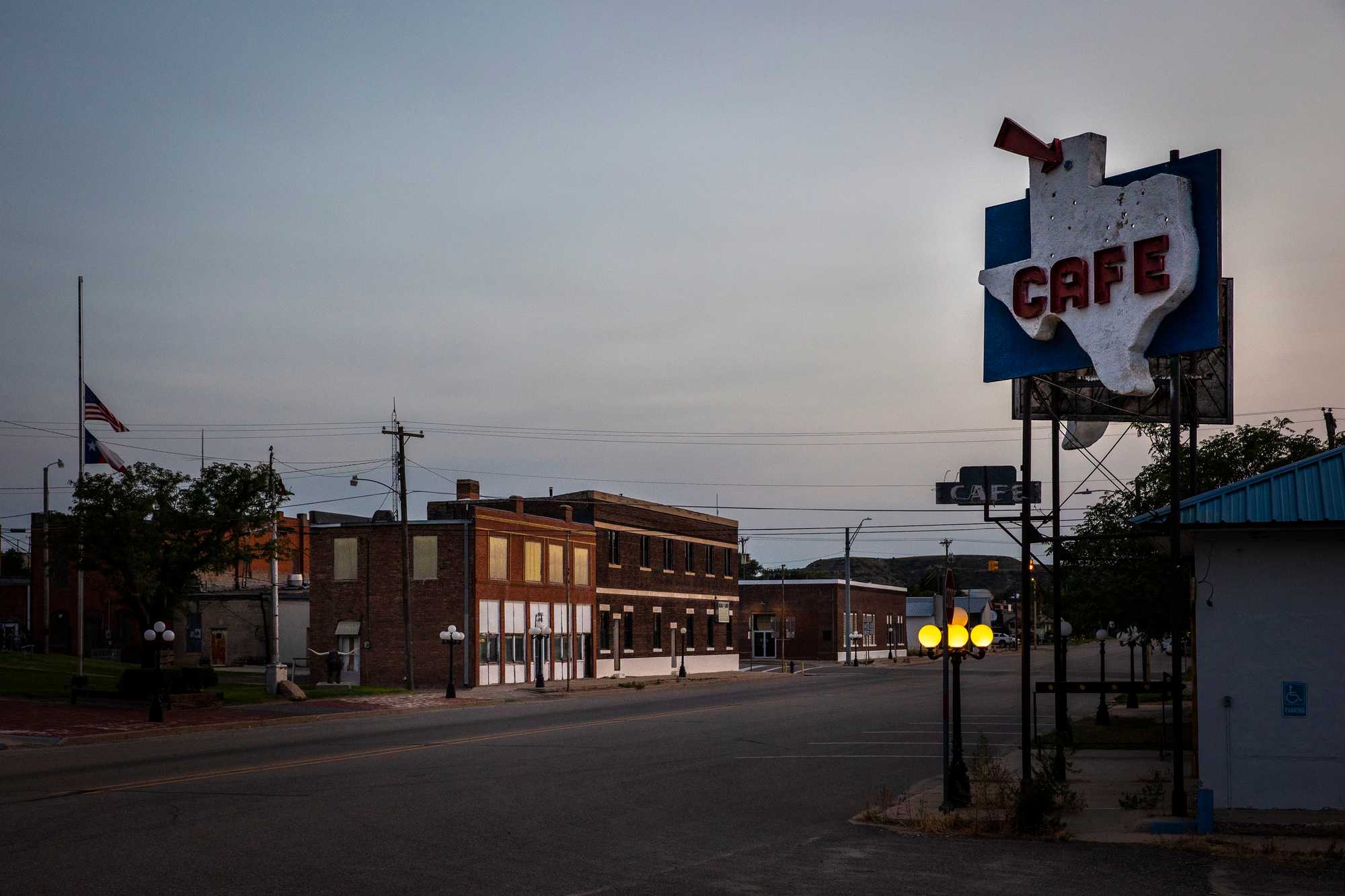
Recent stories from the Los Angeles team
In 2016, the town found itself in an unexpected frenzy of media attention. Voters in Roberts County, of which Miami is the only incorporated community, voted for Donald Trump at a higher percentage than anywhere else in the country — 524 of 554 ballots cast. The world’s media descended seemingly overnight, camping out at the store or cafe, which has since closed, hotspotting dispatches back to their home news organizations.
We were curious whether the wave of attention had changed anything about daily life in the town. And there was a sense of wariness: Biden supporters were reluctant to be interviewed, not from fear of their neighbors, but because they worried about being conscripted into a negative narrative of the town.
Many across the political spectrum still feel burned by that early coverage, which was often sneering; before the 2020 election, one British newspaper described it as “Trump Town USA,” and “a place where a mere mention of Democrat rival Joe Biden is liable to get you run out of town by gun-toting folk.”
Six years later, the town was welcoming to journalists — provided, of course, that you weren’t there to talk about “the Trump thing.”
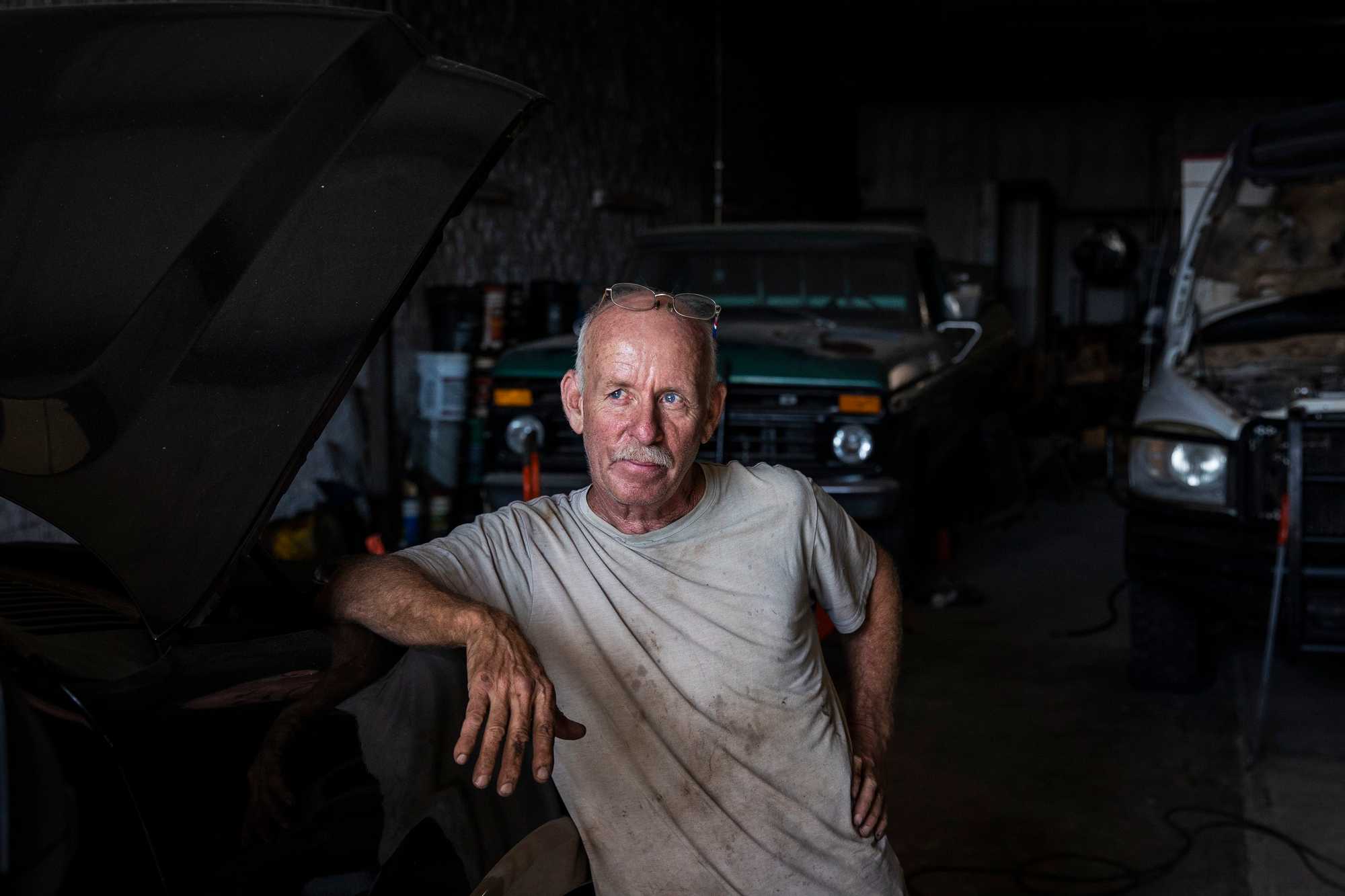
William Jackson is skeptical of the press. When a TV cameraman last came into his garage, “I kind of went off,” he recalls. “I said, ‘if the media would stay out of all of this, America would be so much better.’” The cameraman, Jackson said, simply turned around and left. Jackson’s worry is that “They’re gonna take pieces and slice it up, and then jam the words together, where it makes us look like hillbilly hicks.”
Jackson himself is deeply conservative, but said it didn’t affect his friendships in town. One of his close friends, who died in February, was a registered Democrat. David Stribling would leave his house each day, head to the store, and buy the junk foods that his wife didn’t want him to eat — pecan sandies, or, in later days, Cheetos. And then he would bring them to the garage to sit in his favorite chair and eat them in secret.
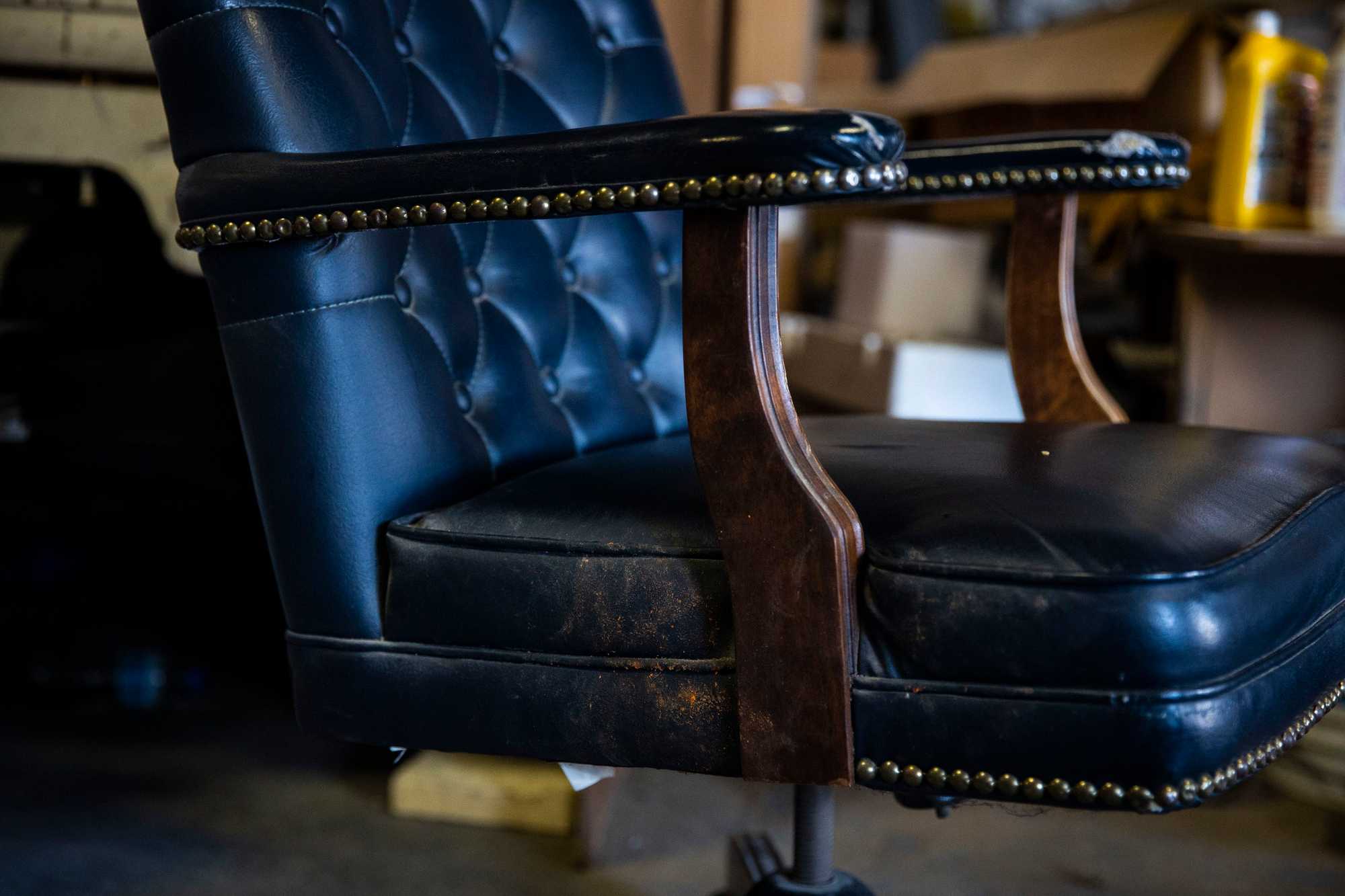
After Stribling died, Jackson discovered a bright orange handprint on the side of the seat, which he hadn’t brought himself to remove.
“I just left it,” he said, swiveling the chair around to display it. “Cheeto dust!”
Holly Jackson works at the courthouse, one of the area’s main employers, where a judge wandered the halls with one of the town’s famous-among-locals snow cones. Earlier in the day, she’d gone to a downtown business hosting “Popcorn Friday” to grab a bag and take it back to work. She popped by her husband William’s garage before heading back to the office, wearing a T-shirt that said “Raising my husband is exhausting.”
“This is the one that matches my shirt today,” she said, gesturing at William.
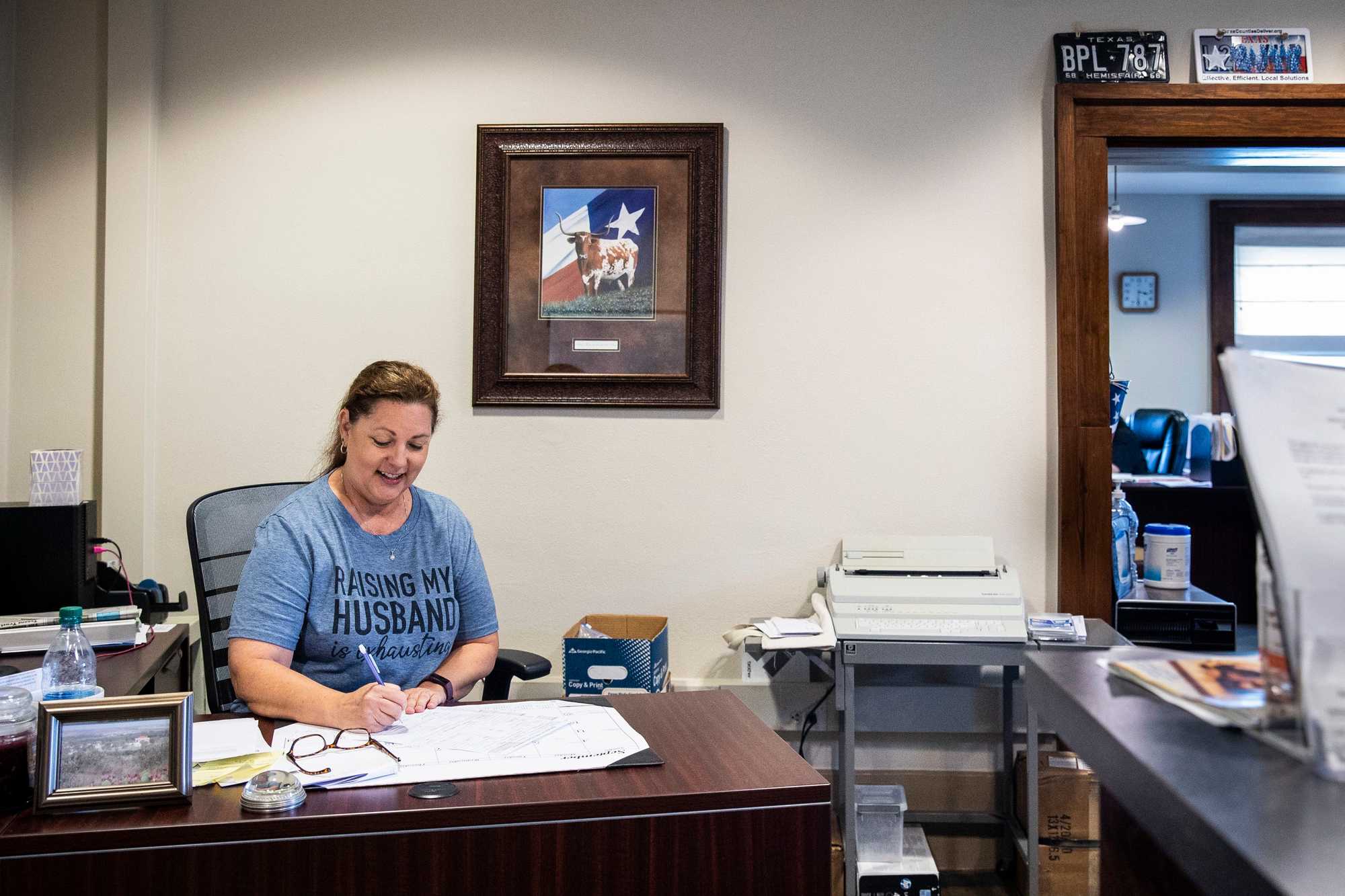
David Locke’s family has been in the county for more than 100 years, and he’s the fourth generation to tend to his ranch. His son is the fifth. Locke’s truck is outfitted with a siren he uses to call the herd and a feeding machine in the back. Total, he’s got about 1,000 head of cattle, so part of the chore involves taking headcounts in his different lots.
As he climbs into the truck cab, he’s still thinking about a question he’d just been asked: How does he feel about the United States at this moment? It was an open question he answered in political terms, saying he was for “strong” Trump and against “weak” Biden.
Asked whether he enjoys following politics, he laughs. “Yeah, I watch Fox News all the time. Maybe that’s why I’m like I am.”
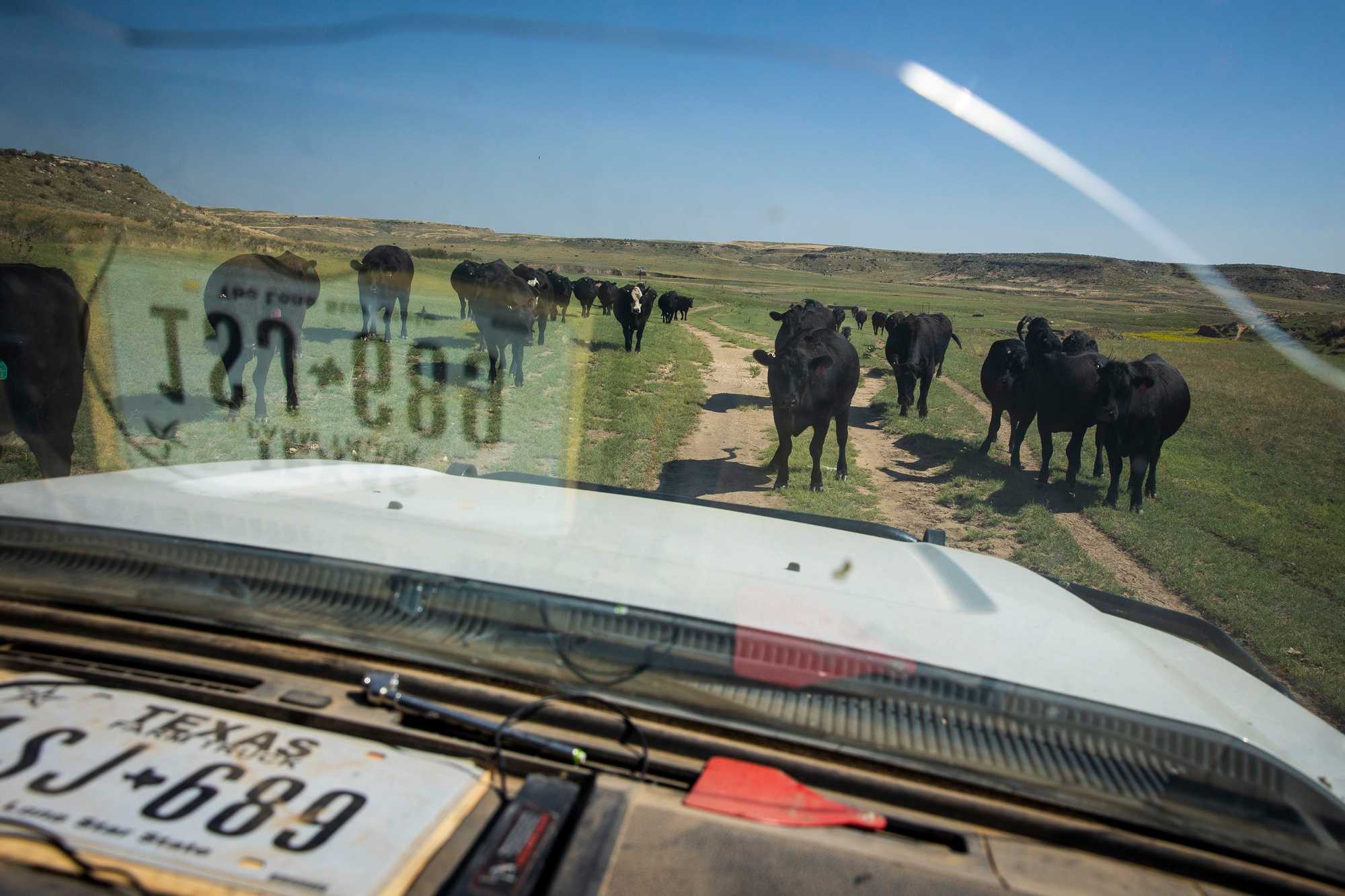
Homecoming is two weeks away, and Abby Burkham and Rylee Allemand still have 50 Texas mums to make. They are crouched on the floor assembling the floofy, beribboned confections that they sell for girls wear to the dance.
Neither woman was born here, but Burkham is engaged to someone from Miami and Allemand is married to one. “It’s very welcoming in some ways,” Burkham said. “But also I think it helps to marry a local.”
They say some of the depictions of Miami in the news are reductive. As Allemand sees it, no one is 100 percent Democrat or Republican. “I think that you can say, ‘I will vote this party because it aligns with the majority of what I believe,’” she said. “But just because I’m a Republican doesn’t mean that I’m saying, ‘I believe you can’t make your own personal choices with your body.’”
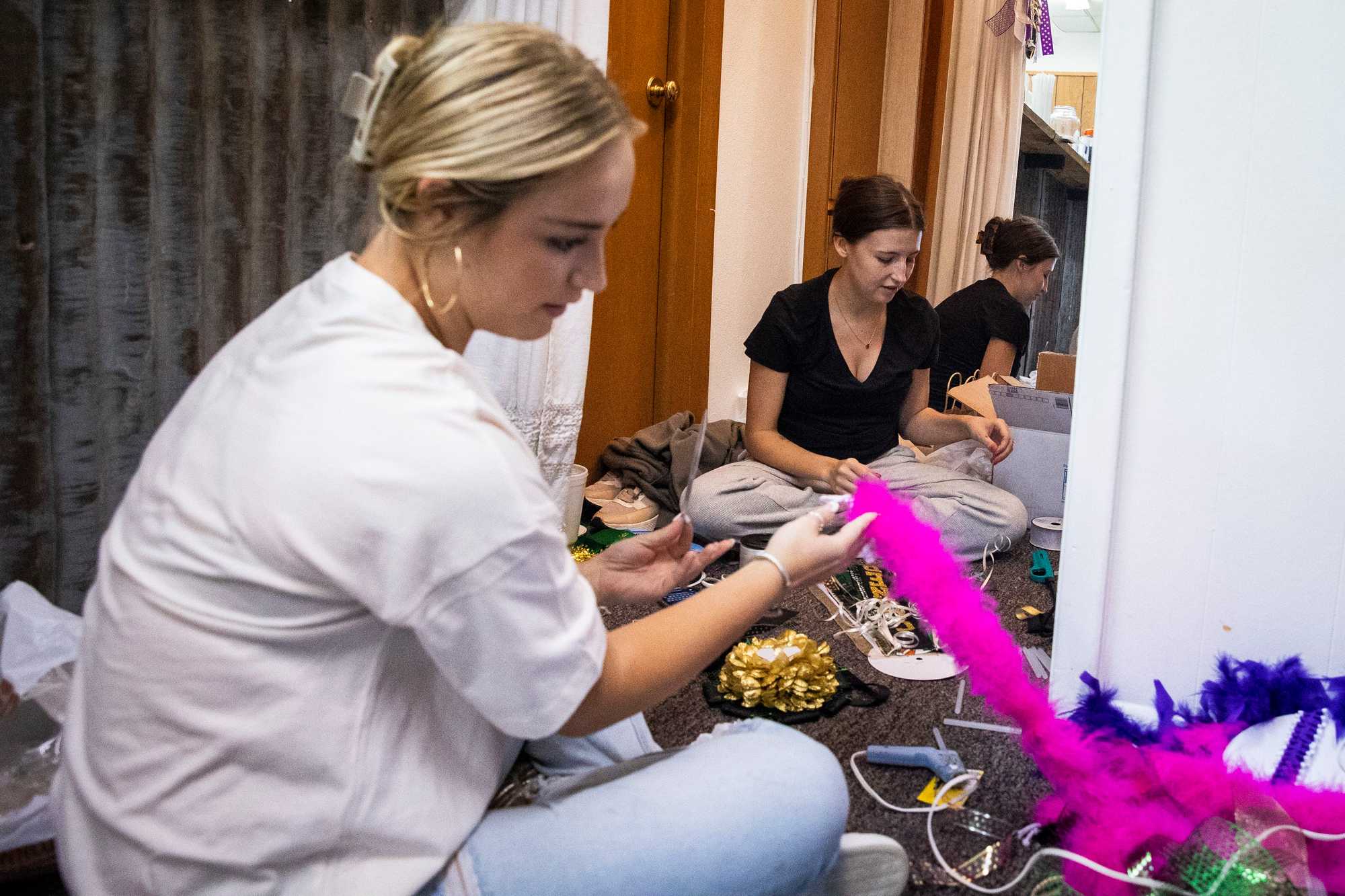
Brad Booze has just gotten done tagging and vaccinating a handful of calves he’d corralled with the help of his young granddaughter. He sits on his tall mare, which has a custom-made bit that Booze himself created — he has a business making bits and spurs. His 2-year-old grandson, Beck, is here, too, riding a horse under the watchful eye of other relatives.
Booze’s favorite part of living in Miami, he said, is that there are “not very many people.”
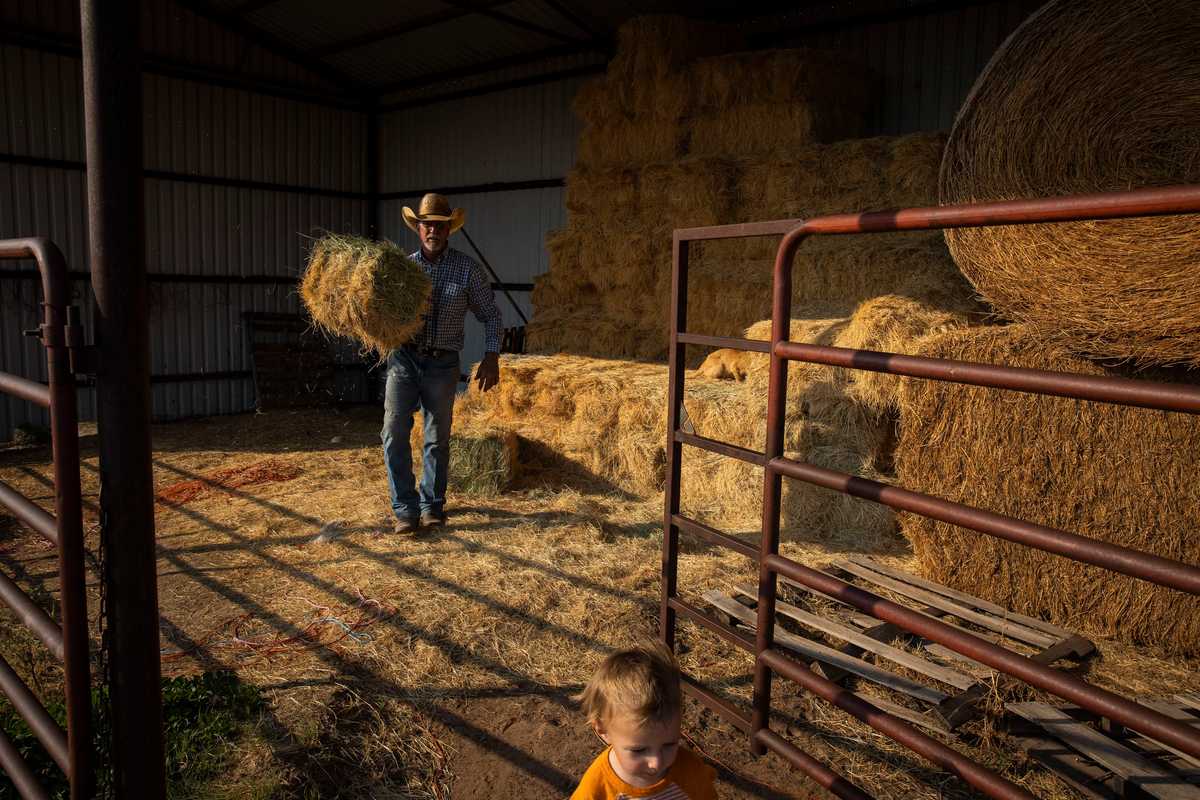
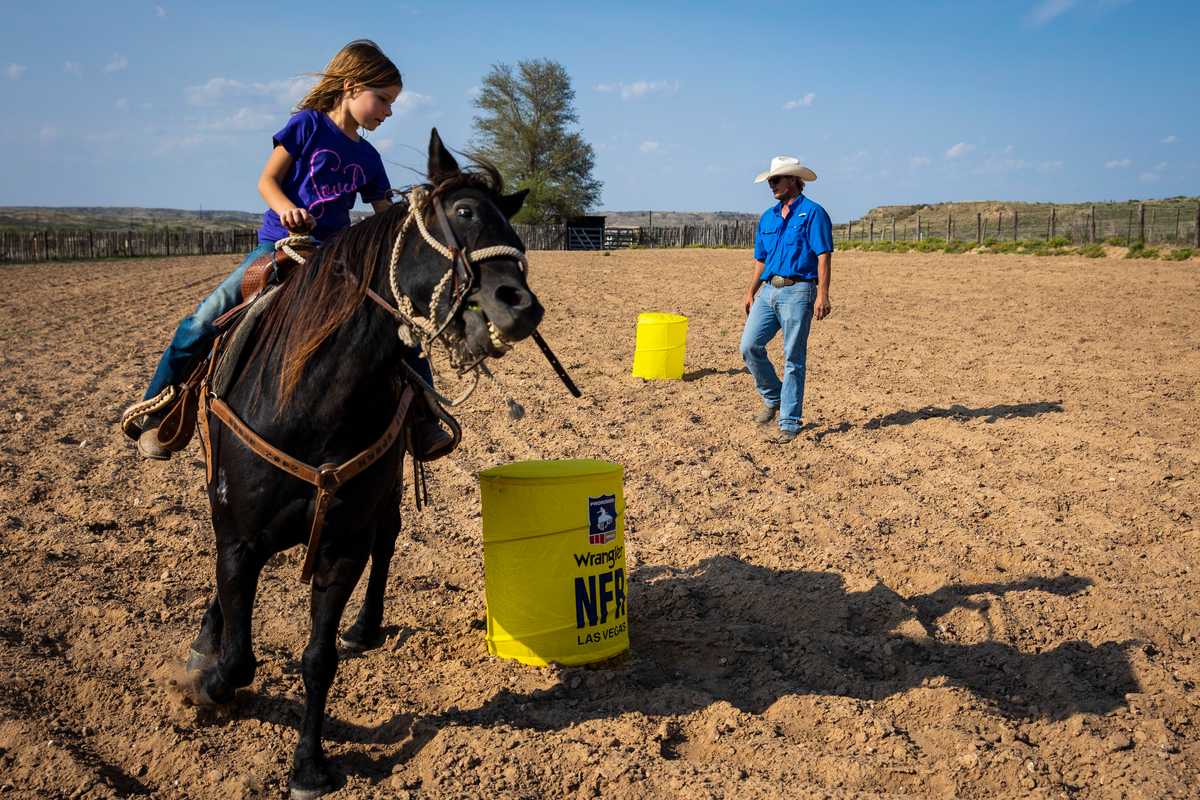
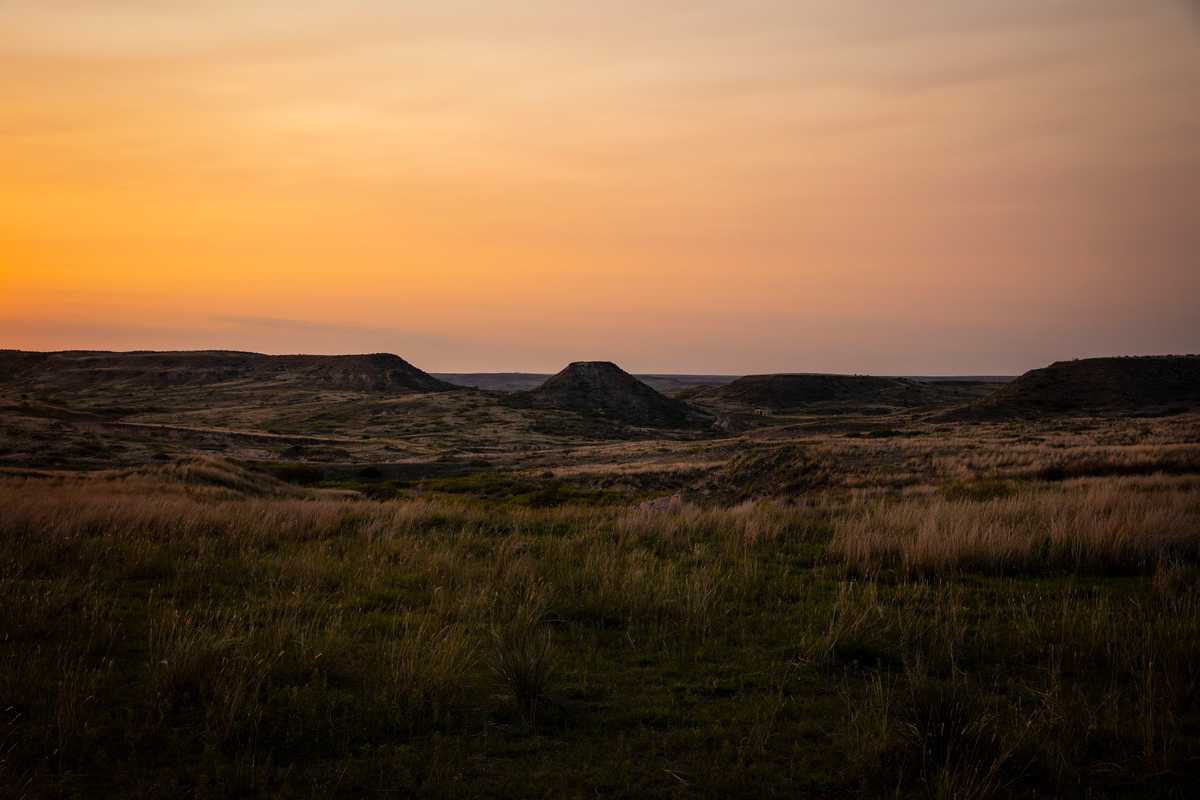

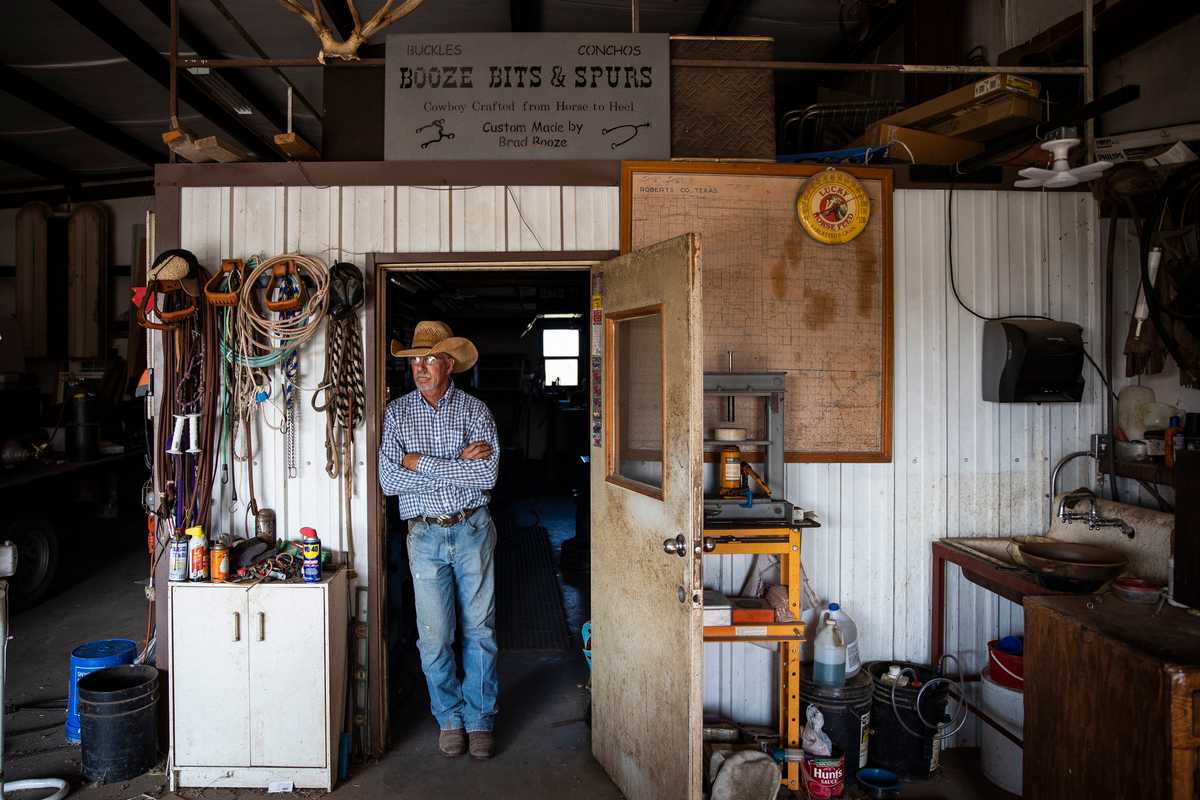
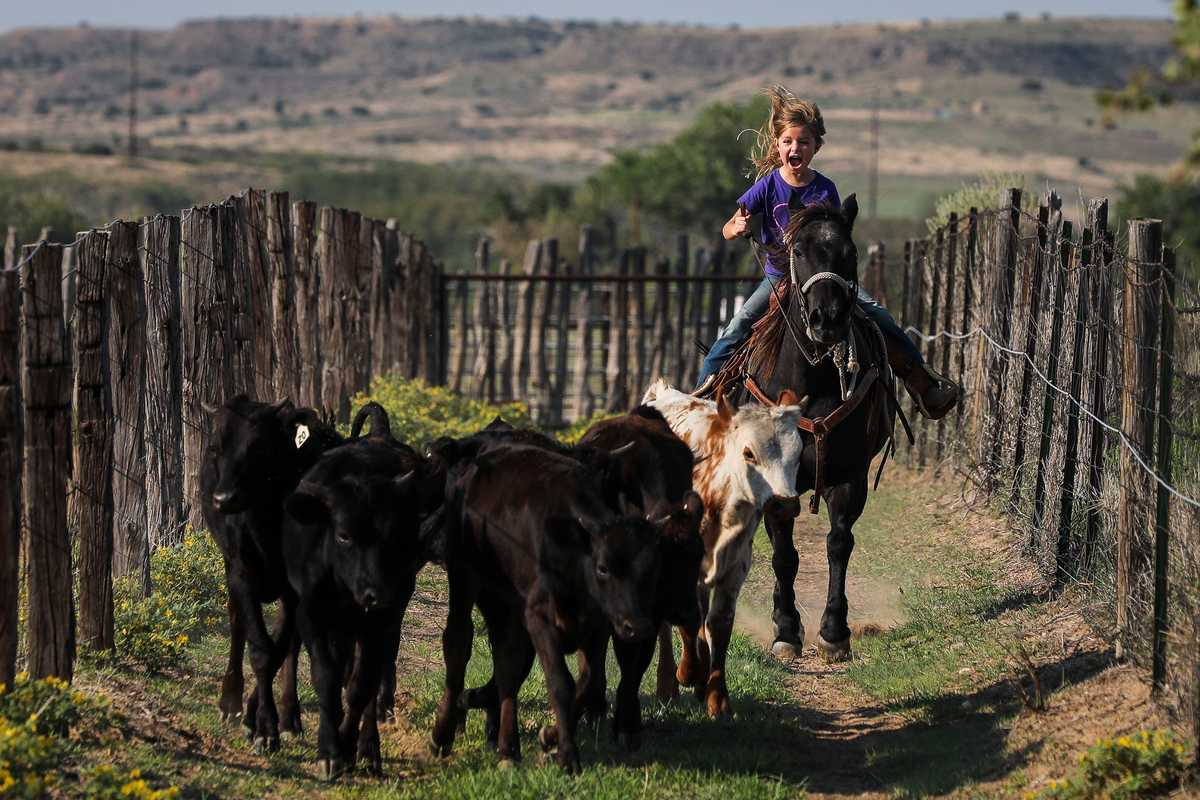
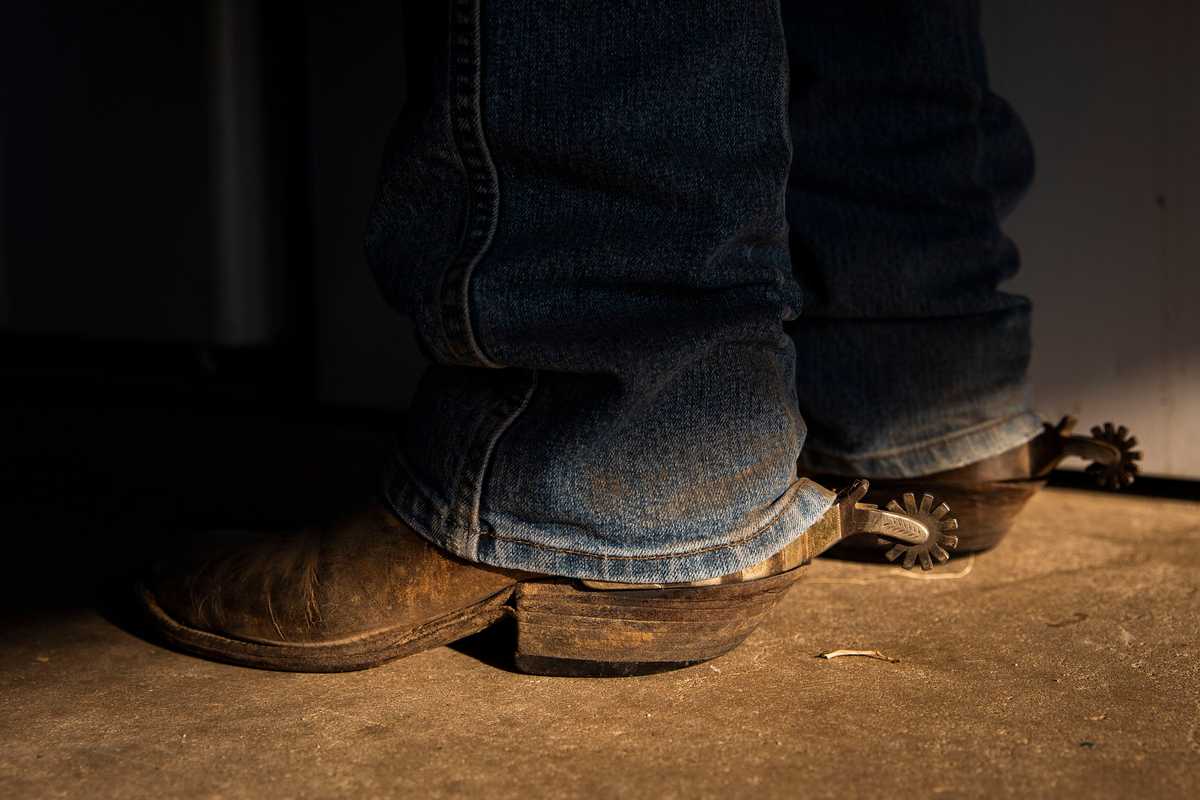
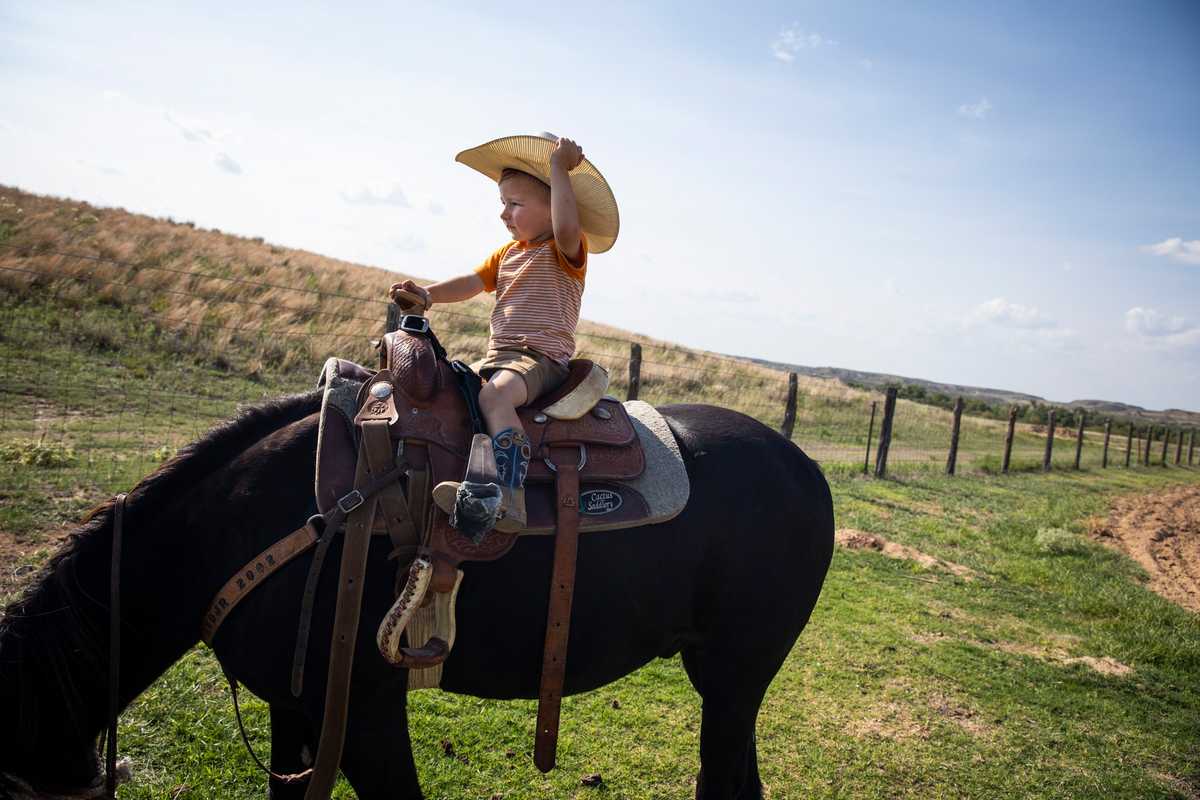
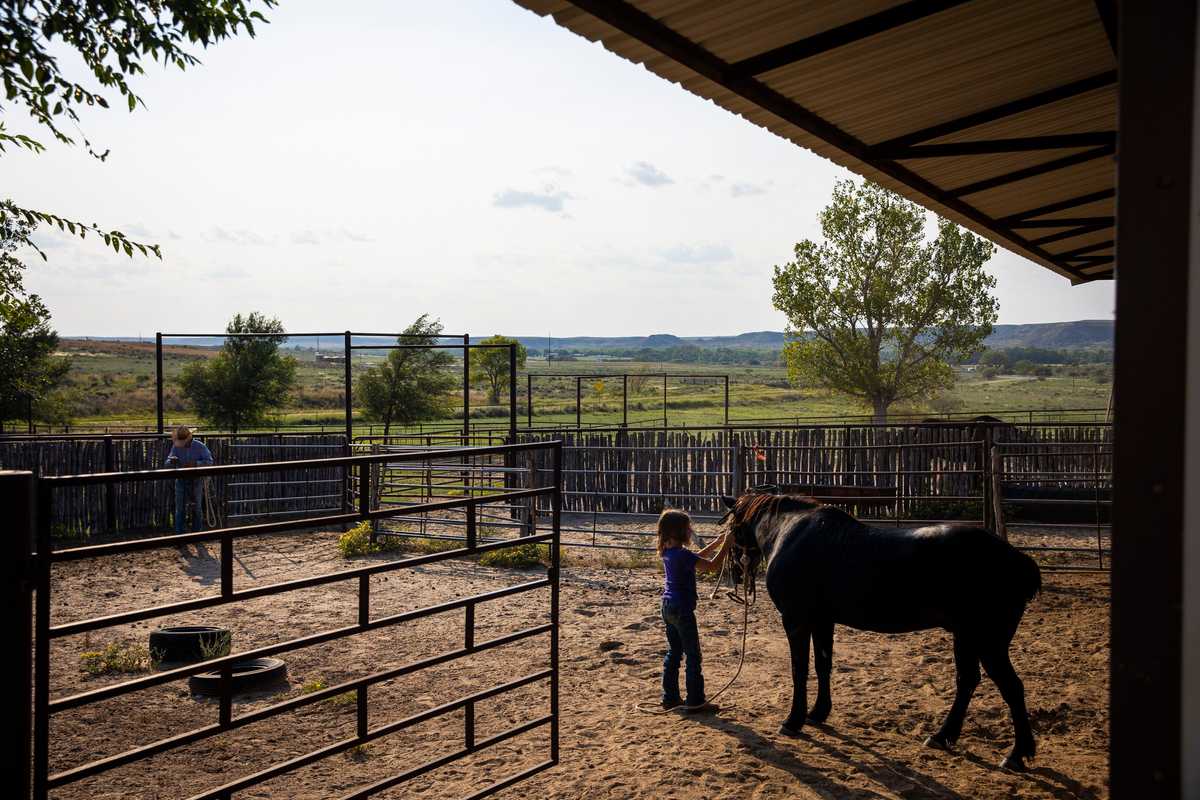
Brad Booze carried a bale of hay to feed his horses on a September day on his ranch in Miami, Texas. (Erin Clark/Globe Staff)
“Am I the oldest person in town? I think I must be,” said Barbara Wiley, known to her neighbors as Miss Barbara, sitting at the historical museum. Her 100th birthday, on September 30, was going to be celebrated with three different parties: a family party, a potluck, and a public party at the same church where Miss Evelyn celebrated turning 92.
And it’s true that after plenty of consideration at the museum — ”Let’s see . . . Billy Joe is 94 . . . Fanny Jean is 92 . . .” — no one can think of anyone older than Wiley.
She moved to town in the 1950s, and Miami still feels like “the same small town,” she said. “Of course, we’ve lost our cafe and things seem to be just kind of dwindling. I don’t know whether we’re gonna get anybody else in or not.”
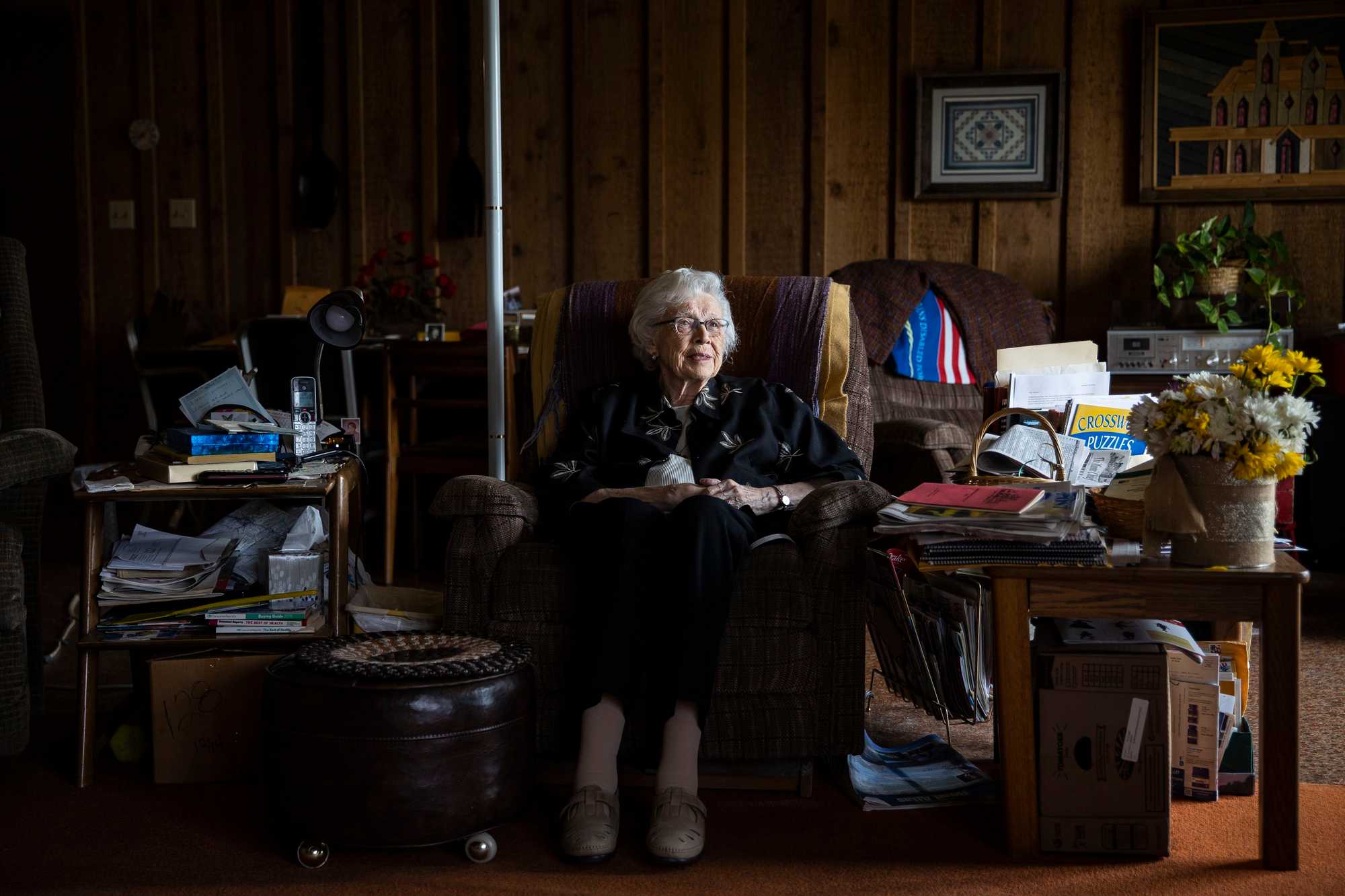
Join the discussion: Comment on this story.
Lissandra Villa Huerta contributed to this report.
Credits
- Reporters: Julian Benbow, Diti Kohli, Hanna Krueger, Emma Platoff, Annalisa Quinn, Jenna Russell, Mark Shanahan, Lissandra Villa Huerta
- Photographers: Erin Clark, Pat Greenhouse, Jessica Rinaldi, and Craig F. Walker
- Editor: Francis Storrs
- Managing editor: Stacey Myers
- Photo editors: William Greene and Leanne Burden Seidel
- Video editor: Anush Elbakyan
- Digital editor: Christina Prignano
- Design: Ryan Huddle
- Development: John Hancock
- Copy editors: Carrie Simonelli, Michael Bailey, Marie Piard, and Ashlee Korlach
- Homepage strategy: Leah Becerra
- Audience engagement: Lauren Booker, Heather Ciras, Sadie Layher, Maddie Mortell, and Devin Smith
- Newsletter: LaDonna LaGuerre
- Quality assurance: Nalini Dokula
- Additional research: Chelsea Henderson and Jeremiah Manion
© 2022 Boston Globe Media Partners, LLC
